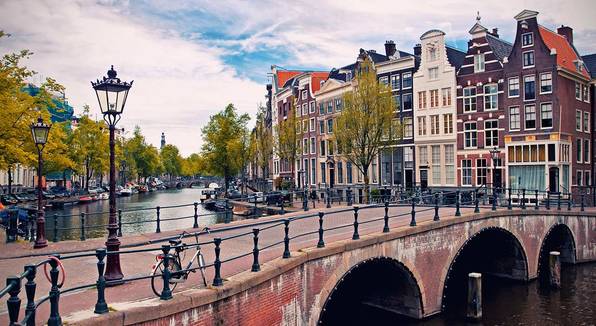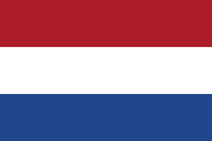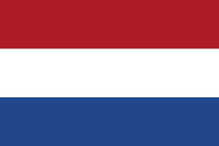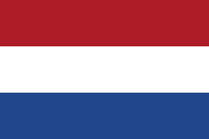NETHERLANDS
Below are a selection of interviews with people affected by ME in the Netherlands ahead of my trip there next month. Here's what they told me...
*For Dutch translations please click here
Anil Van Der Zee from Amsterdam:
- How did you get ill?
- How were you diagnosed?
- How does this disease affect you?
So I spend about 11 months in total isolation. No phone calls, Skype, videos, radio, no light no sound. I just get up to get food very quickly and toilet visits. I moved to another place and have improved a bit. My friend comes to bring food and waves quickly and leaves. It's a big improvement. I can push myself for longer visits but they are intense. But I'm hopeful things will keep improving.
- What’s the hardest part about having ME?
- What is your doctor’s perception/understanding of ME/CFS?
- What treatment is currently prescribed to those suffering?
- Do patients receive adequate support and benefits?
- What changes would you like to see to the treatments currently proposed in Netherlands?
- What does the future look like for ME/CFS patients in Netherlands? Is there reason to be positive?
The best part is that we are starting to get support from outside the patient community. Clinicians, politicians and journalists are starting to take notice about the PACE-trial and how the current treatment for this disease just doesn't add up. And they are joining with voicing their concern. I see some light at the end of this tunnel. I am very carefully optimistic.
Anil is crowdfunding for a sound isolation cabin - click here to help him
Frank Twisk
My name is Frank Twisk, in a previous life I was a Project Manager, Business Administrator and Information Scientist, Mathematician and Higher Education Teacher. And also an enthusiastic football player who just missed making the Dutch national team. I have had ME since 1996. I’m a medical refugee in Belgium; thanks to Prof De Merleir I have improved somewhat. I have my own website and I am a writer and activist out of necessity.
Just like many patients, I’ve had to give up so many things. From being a higher education teacher and writer I became a loser and layabout with an imaginary disease. From being a very active guy, I became a couch potato. I went from an academic level of intelligence to an IQ of 100. From having a social life to having an isolated life, being a medical refugee in Belgium and a person who lost a small fortune in personal income.
During the first few years I tried to find answers in the medical world but to no avail. I then decided to look for answers myself. I started to write medical articles myself resulting in a number that could be called rather controversial, not in the least because they take a tough line on CBT and Wessely. If we look at the battle for ME and for the truth, we can see that the arguments put forward by the community are being increasingly disregarded. Apparently the free market has entered the medical sector as well. The sales force behind the evidence based approach wins the battle every time. The media are not entirely without fault either. They just repeat the established order’s sales talks or so-called press releases without question. This is partly because journalists often lack the time to do their own research, I find it incomprehensible how all the proof of biological abnormalities is just being swept under the carpet and also how psychobabble is given free rein in the Netherlands. Patients often write letters to the editor. Apparently paper arguments are insufficient to win this battle. We will have to be more creative in trying to defeat our opponent.
For a better future I believe we need a number of things. First of all a clear distinction between ME and CFS. ME and CFS are two different things. ME has been described by Ramsay and we should not tamper with this. ME symptoms such as muscle weakness and memory loss are not required for a diagnosis of CFS. Yes I am chronically tired but I am chronically tired of fatigue clinics, fatigue apps and fatigue experts. No I am not tired, I want to play football, I want to read, I want to play. In order to find a solution we will have to take a step back to basics. This means the symptoms and diagnosis. We should stop using questionnaires. My expert advice would be to test, test and test again. Terms such as ‘exertion intolerance’ are too vague to be put into questionnaires. We have to make sure that disbelievers can no longer continue denying the problem. And this we can only achieve by having well-defined and solid symptoms. Considering the scientific developments, I feel fairly optimistic about the future. But on the other hand I have already been waiting for 18 years. Making a scientific breakthrough is a matter for scientists, but this does not mean that patients should sit back and wait for things to happen. We will have to be more creative in attracting attention to the problem and putting it on the agenda. It’s time for fresh and renewed vigour or I will give the same talk again in 18 years time.
Taken from ‘ME and my life; past, present and future’
https://goo.gl/ZZBSCS
Rob Wijbenga from The Global ME Chronicle and ME Centraal
After her death I became involved with the Dutch ME/cfs Association and was elected chairman in the fall of 2011, a position I held until Nov. 2014, having completed the statutory period of three years. During that time I started the ME Global Chronicle (https://www.facebook.com/groups/TheMEGlobalChronicle/) with my dear friend Eddy Keuninckx from Belgium at the start of 2014 and thanks to the effects of the government subsidized project Science to Patients (https://www.facebook.com/groups/TheMEGlobalChronicle/), for which I interviewed major ME-researchers from all over.
On the 8th August 2016 (Severe ME-day) together with two patients I started the Dutch wall ME Centraal (https://www.facebook.com/MECentraal/) adding a site on 8th August of this year, with until now a modest English section (https://mecentraal.wordpress.com/english/).
Right from Karen’s death I got the strong conviction the reigning powers over the disease ME -the biopsychosocial approach and its exponents – had been able to hold the reins also due to isolation of patient communities. The actual and current bundling of powers of patients from all over the world seem to confirm that point of view.
So in the autumn of 2013 I decided to send a sketchy newsletter to all the email-addresses the videos were sent to on a regular basis, with news from the countries I was able to lay my hands on. Eddy came in and also Janice Roseingrave from New Zealand and David Egan from Ireland and in 2014 we started the Chronicle. Janice and David left and Eddy and I remain until now. Eddy mainly creates the beautiful lay-out and I mainly provide the articles from all over, categorized in different sections. The magazine has become mature and more and more people and important organizations start appreciating it and are sending us submissions for issues to come. Leonard Jason advised us to go bimonthly (one issue each two months) after half a year of publishing monthly which proved to be much more practical.
Subscription is free and can be effectuated by just letting know you’d like to receive the magazine on [email protected]
I dare to say both the wall and the site of ME Centraal and the wall of the Dutch section of Millions Missing (https://www.facebook.com/MillionsMissingHolland/) are the best and most active representatives of patients’ efforts to move things into a different direction and are receiving more and more appraisal of the patients themselves, thus involving them. As even liking one article on these social media implies patient advocacy, to my view.
I think we all should try and highlight much more how deadly this disease can be, to have the same success as the AIDS-movement did in the 80s and 90s and have ME recognized as a major cause of untold suffering and human tragedy. Which is one of the responsibilities of the individual man towards mankind.
Sept 2017
- What’s your experience of ME?
After her death I became involved with the Dutch ME/cfs Association and was elected chairman in the fall of 2011, a position I held until Nov. 2014, having completed the statutory period of three years. During that time I started the ME Global Chronicle (https://www.facebook.com/groups/TheMEGlobalChronicle/) with my dear friend Eddy Keuninckx from Belgium at the start of 2014 and thanks to the effects of the government subsidized project Science to Patients (https://www.facebook.com/groups/TheMEGlobalChronicle/), for which I interviewed major ME-researchers from all over.
On the 8th August 2016 (Severe ME-day) together with two patients I started the Dutch wall ME Centraal (https://www.facebook.com/MECentraal/) adding a site on 8th August of this year, with until now a modest English section (https://mecentraal.wordpress.com/english/).
- What treatment was prescribed for Karen and how did it affect her?
- What support did you get from doctors, clinics or the authorities?
- Can you tell us more about the ME Global Chronicle?
Right from Karen’s death I got the strong conviction the reigning powers over the disease ME -the biopsychosocial approach and its exponents – had been able to hold the reins also due to isolation of patient communities. The actual and current bundling of powers of patients from all over the world seem to confirm that point of view.
So in the autumn of 2013 I decided to send a sketchy newsletter to all the email-addresses the videos were sent to on a regular basis, with news from the countries I was able to lay my hands on. Eddy came in and also Janice Roseingrave from New Zealand and David Egan from Ireland and in 2014 we started the Chronicle. Janice and David left and Eddy and I remain until now. Eddy mainly creates the beautiful lay-out and I mainly provide the articles from all over, categorized in different sections. The magazine has become mature and more and more people and important organizations start appreciating it and are sending us submissions for issues to come. Leonard Jason advised us to go bimonthly (one issue each two months) after half a year of publishing monthly which proved to be much more practical.
Subscription is free and can be effectuated by just letting know you’d like to receive the magazine on [email protected]
- What changes would you like to see to the treatments currently proposed in Netherlands?
- What practical things can people in the Netherlands do to help effect change?
I dare to say both the wall and the site of ME Centraal and the wall of the Dutch section of Millions Missing (https://www.facebook.com/MillionsMissingHolland/) are the best and most active representatives of patients’ efforts to move things into a different direction and are receiving more and more appraisal of the patients themselves, thus involving them. As even liking one article on these social media implies patient advocacy, to my view.
- What does the future look like for ME/CFS patients in Netherlands? Is there reason to be positive?
I think we all should try and highlight much more how deadly this disease can be, to have the same success as the AIDS-movement did in the 80s and 90s and have ME recognized as a major cause of untold suffering and human tragedy. Which is one of the responsibilities of the individual man towards mankind.
Sept 2017



